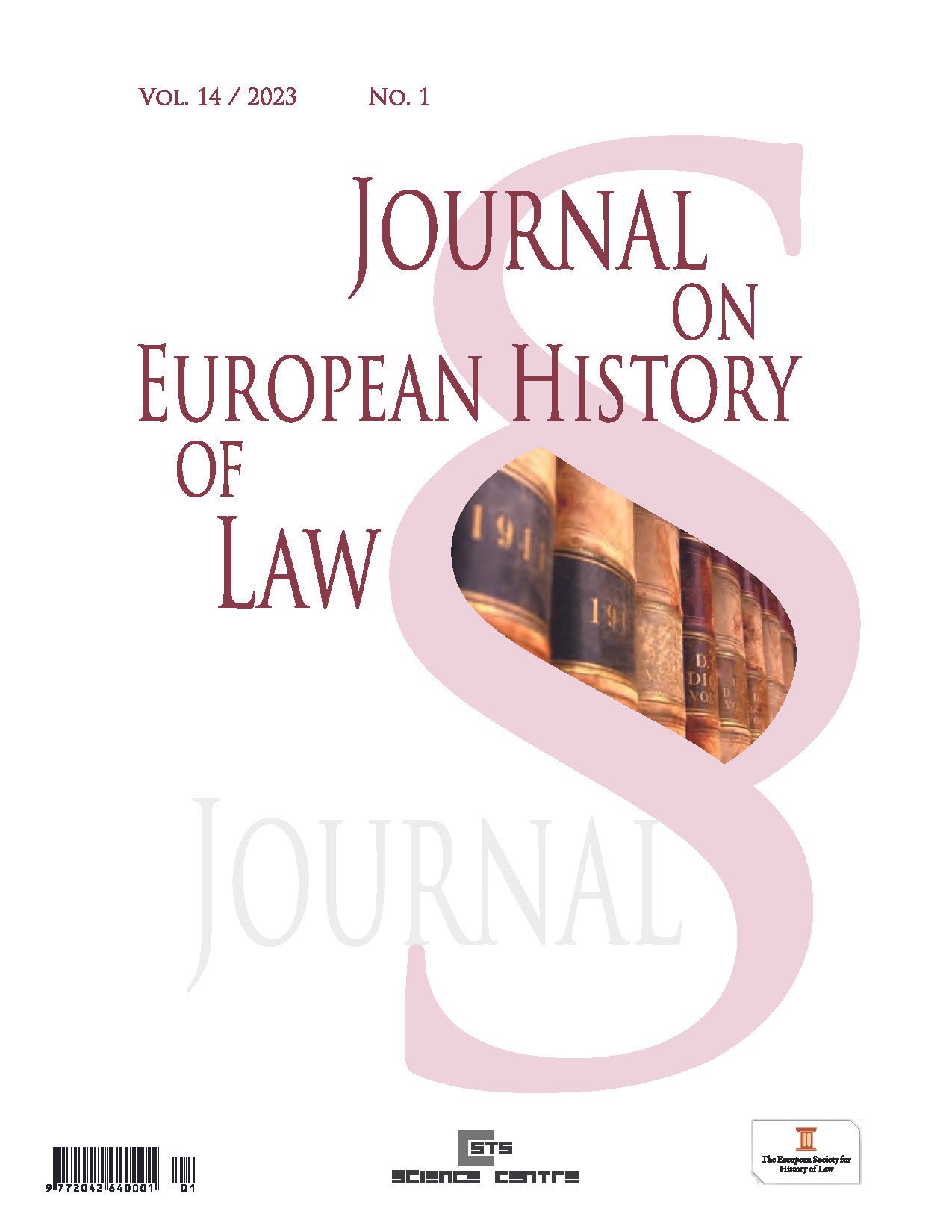Iurisprudentia in Medieval Ecclesiastical Jurisdiction (The Role of the iurisperitorum in the German and Hungarian Case Law)
Iurisprudentia in Medieval Ecclesiastical Jurisdiction (The Role of the iurisperitorum in the German and Hungarian Case Law)
Author(s): Elemér BaloghSubject(s): Law, Constitution, Jurisprudence, History of Law, Middle Ages, Canon Law / Church Law, Roman law
Published by: STS Science Centre Ltd
Keywords: Iurisperiti; Holy See; Germany; Hungary; Roman law; canon law; Ivo de Chartre; Ivo de Hélory; Juristenstand; formularia;
Summary/Abstract: The Council of Lateran IV (1215) was a landmark in the history of European law, when it required ecclesiastical courts to entrust the jurisdiction of the diocese to a person learned in canon law, among other things. This provision was the corollary of the rule that medieval canon law judges were, as a rule, persons who were well versed in the law and who had typically acquired their knowledge at universities. The situation was somewhat different in Hungary, where there was no university in the Middle Ages, but the extensive jurisdiction of the Holy See meant that the institutions of domestic law had to be applied, and the use of lawyers who knew Hungarian law was therefore indispensable.An important feature of medieval ecclesiastical jurisprudence was that, because of the high level of canon law knowledge required, judges were happy and often called upon the assistance of learned canon lawyers (iurisperiti) in complex cases. These lawyers, with their outstanding knowledge, were typically specialists in Roman canon law (ius novum) in the western countries of Europe, but in Hungary they were more likely to be specialists in the customary law of the nobility. Both groups of persons included the most qualified jurists of their time, and the institutional background for the acquisition of knowledge was provided by the universities. It was in these universities that learned law was taught, and not only substantive law but also a new model of procedural law (inquisitio) was created, based on the late Roman investigative trial.
Journal: Journal on European History of Law
- Issue Year: 14/2023
- Issue No: 1
- Page Range: 123-133
- Page Count: 11
- Language: English
- Content File-PDF

